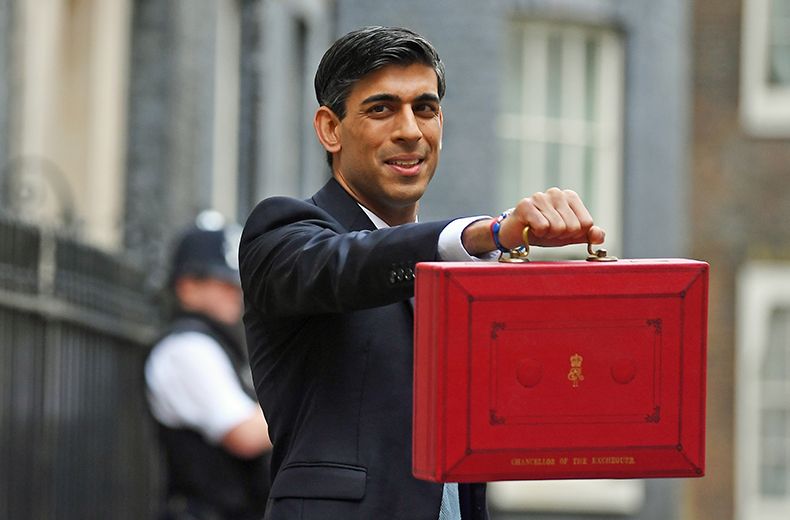Here we look in more detail at a spending plan the RAC says provides something for both today and tomorrow’s drivers.
Fuel duty frozen
Fuel duty has been frozen for the tenth year - a move Mr Sunak was keen to point out - many believed couldn’t be done. A recent RAC survey found double the proportion of drivers that wanted fuel duty slashed would happily continue to pay the same so long as money from duty started to be invested in local roads.
RAC head of roads policy Nicholas Lyes says the news “will be a relief to drivers up and down the country.
“While the Chancellor might have been tempted to increase duty, the reality is that for millions this would have simply increased their everyday driving costs and done nothing to encourage them to switch to cleaner vehicles.”
Rapid charging hubs pledged £500 million
Drivers of electric vehicles (EVs) will benefit from a pledge of £500 million over the next five years to support the rollout of a fast-charging network.
The investment will go towards alleviating ‘range anxiety’, with plans for drivers to always be within 30 miles of a rapid-charging station.
This £500m will include a Rapid Charging Fund to help businesses with the costs of connecting high-powered charge points to the electricity grid.
Plug-in car grant extended
The RAC also welcomes the £403 million promised to extend the plug-in car grant until 2022-23, although notes it will be cut from up to £3,500 off the list price of a new vehicle down to up to £3,000.
Mr Lyes said it’s “something we called for and which will provide a real long-term boost for drivers who plan on changing their vehicle in the next couple of years but find the current upfront costs prohibitive.”
The Government provided further incentives for motorists looking to make their next car electric, as plans for zero emission car exemption from the ‘expensive car supplement’ on Vehicle Excise Duty were announced.
Mr Lyes added: “Our research suggests that cost is one of the biggest barriers for drivers who want to switch to an electric vehicle and the steps taken today provide clarity and certainty for both consumers and manufacturers.”
This news should be especially welcome for those looking to switch to an electric vehicle in light of the government’s plans to bring forward a ban on the sale of all new petrol and diesel vehicles.
- How will electric cars impact the environment and our lives?
- What would a 2035 ban on petrol and diesel car sales mean for you?
- 11 ways to reduce your driving emissions
£2.5 billion for filling potholes
Potholes also made it to Parliament, as the Chancellor promised £500 million a year for five years to fill 50 million potholes.
The RAC says that while the £2.5 billion pothole fund is helpful, what has been committed is “simply not enough” – particularly if the UK is hit by extreme winter weather.
Independent estimates from the Asphalt Industry Alliance put the pricetag on a one-time catch-up cost to get roads back into a steady state at a staggering £9.3 billion.
Mr Sunak also announced plans for a number of local road upgrades. These include the refurbishment of Kew Bridge, a single carriageway bypass on the A39 Atlantic Highway and junction improvements to the A12, east of Ipswich.
Largest ever investment in strategic roads
The Chancellor thanked Transport Secretary Grant Shapps as he announced the biggest ever investment in English strategic roads.
Over £27 billion of tarmac was promised to “work on over 20 connections to ports and airports, over 100 junctions, 4,000 miles of road.”
The efforts to increase capacity will come as welcome news to drivers exasperated by traffic-laden roads.
Mr Lyes said: “Congestion is a major concern for over a fifth of drivers and it’s vitally important that we continue to keep both drivers and Britain moving.”
As a driver, what’s your take on the Budget? Is your area in dire need of investment? Is the plug-in grant enough to tempt you into a electric vehicle? Leave us a comment below.

Complete peace of mind for less
• Cheaper than AA Price Promise or your money back^
• We get to most breakdowns in 60 mins or less
• Our patrols fix 4/5 breakdowns on the spot




